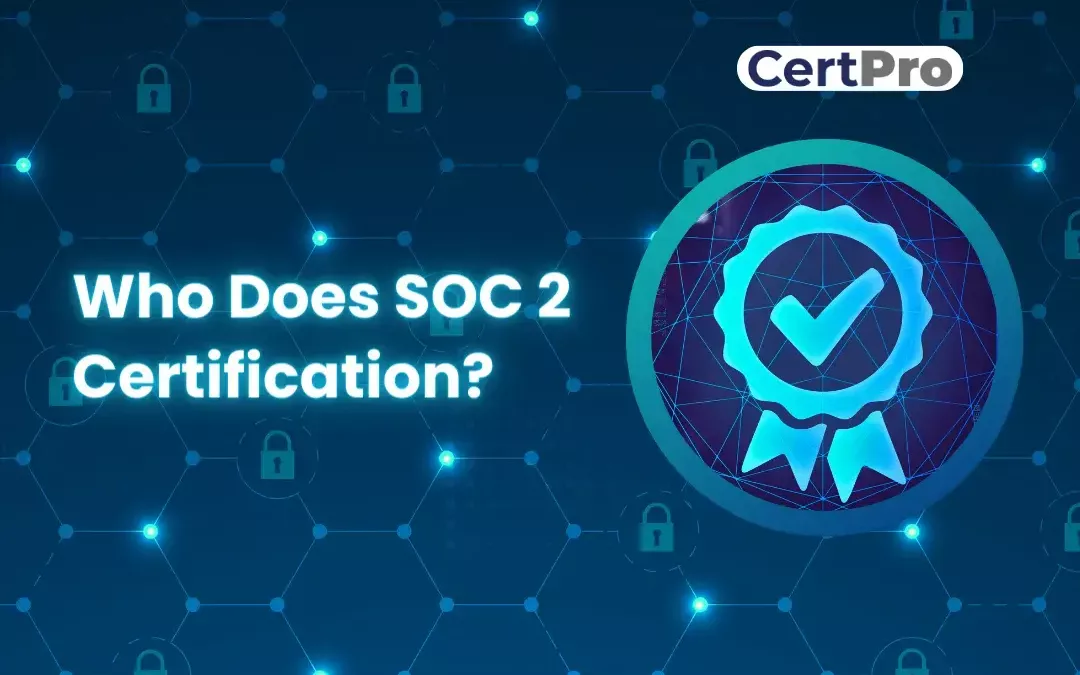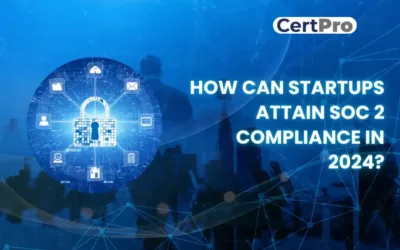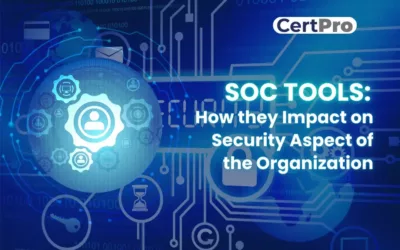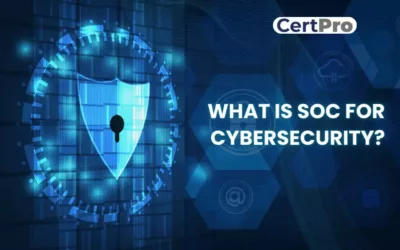Data is the essence of organizations in today’s linked digital economy, thus protecting sensitive information has become crucial. A certification that stands out as the gold standard for confirming that service providers adhere to the stringent guidelines for data security, availability, and confidentiality is SOC 2 (Service Organization Control 2). Businesses looking to strengthen their data protection procedures must comprehend who manages SOC 2 certification since achieving SOC 2 compliance is a rigorous process.
This in-depth guide takes a closer look at the complexities of SOC 2 Compliance, investigating the pivotal contributors in the certification journey. Join us as we traverse the route to SOC 2 certification, unraveling the intricacies of the process and illuminating the entities essential for fostering trust in the contemporary data-driven ecosystem.
WHAT IS SOC 2?
System and Organization Controls 2, or SOC 2, is a voluntary standard that emphasizes service providers managing and protecting sensitive data appropriately. This compliance framework offers an organized method for assessing and revealing the internal controls put in place by businesses to guarantee the security, accessibility, processing integrity, privacy, and confidentiality of the data they are responsible for managing. It provides an organized approach to reporting and audits, providing an understanding of the steps taken by companies to ensure the security and integrity of the data they handle.
The American Institute of Certified Public Accountants (AICPA) has been credited with creating the SOC 2 standard. This standard outlines a set of guidelines, called the Trust Services Principles, that form the basis for evaluating internal controls in an enterprise. Every principle is associated with a unique set of requirements that specify how an organization must comply with the standard. These standards are specifically designed to correspond with the distinct goals that the organization has stated.
WHAT COMPRISES THE TRUST SERVICES CRITERIA?
The Trust Services Criteria, previously referred to as the Trust Services Principles, constitute the foundational components of the SOC 2 framework. Serving as the focal points for the audit and reporting process, they define the crucial domains where an organization’s controls undergo assessment, encompassing security, availability, processing integrity, confidentiality, and privacy.
The following outlines the contents of each criterion:
1. Security: Protection measures are in place to prevent unauthorized access or disclosure of sensitive information, as well as to mitigate system damages that might jeopardize the availability, integrity, confidentiality, or privacy of data.
2. Availability: The service must uphold the agreed-upon availability standards, which may have been stated or impliedly by both parties; efficiency or accessibility assessments are not necessary for evaluation. Examining site failover, network dependability, and responsiveness to security issues are all part of availability auditing.
3. Confidentiality: Confidentiality is guaranteed by restricted data access; this covers private information given by users for the sole purpose of the business, such as financial and business plan information. The auditor assesses security measures like access restrictions, network and software firewalls, and data encryption.
4. Privacy: Privacy principles cover the handling of personal information according to AICPA’s generally accepted principles, encompassing data like names, addresses, and sensitive details. Auditors ensure controls prevent the unauthorized dissemination of personally identifiable Information (PII).
5. Processing Integrity: As required by the processing integrity concept, system processing must be exhaustive to guarantee activities’ permission, timeliness, validity, correctness, and alignment with the main business goals.
A thorough understanding of the Trust Services Criteria is necessary for businesses that want SOC 2 certification since they act as a roadmap for building and evaluating strong data security policies. Organizations may demonstrate their commitment to protecting confidential data and building stakeholder confidence by following these guidelines.
WHO IS SOC 2 FOR?
SOC 2 is crafted to suit the needs of technology service providers and SaaS companies involved in the management or storage of customer data. Additionally, third-party vendors, collaborators, or support entities engaged by these firms should contemplate attaining and upholding SOC 2 compliance. This is crucial for guaranteeing the security and reliability of their data systems and protective measures.
Following is the breakdown of who can benefit from SOC 2 compliance:
1. Service providers: Organizations handling customer data through storage, processing, or transmission must prioritize security. This encompasses cloud computing providers, data centers, SaaS companies, managed service providers (MSPs), and financial institutions. The adoption of SOC 2 compliance reflects their dedication to data security, fostering trust and confidence with clients.
2. Investors and lenders: Effective data security controls may be a great help to businesses trying to get loans or investments, and SOC 2 compliance may have an impact on lenders’ or investors’ choices.
3. Customers: Organizations reliant on service providers for data management are extremely worried about the security procedures being followed. SOC 2 reports are transparent and reassuring, confirming that the service provider is taking the necessary precautions to protect their data.
4. Businesses with Regulatory Compliance: Entities operating in healthcare (HIPAA), finance (PCI DSS), and other regulated sectors contend with stringent data security requirements. SOC 2 compliance stands as a valuable instrument, showcasing conformity to these regulations and averting potential substantial fines and damage to reputation.
Essentially, SOC 2 is designed for any business that is sincerely dedicated to protecting its information and building confidence among its stakeholders. Regardless of sector or size, this approach offers a useful path to increased security, compliance, and a competitive advantage.
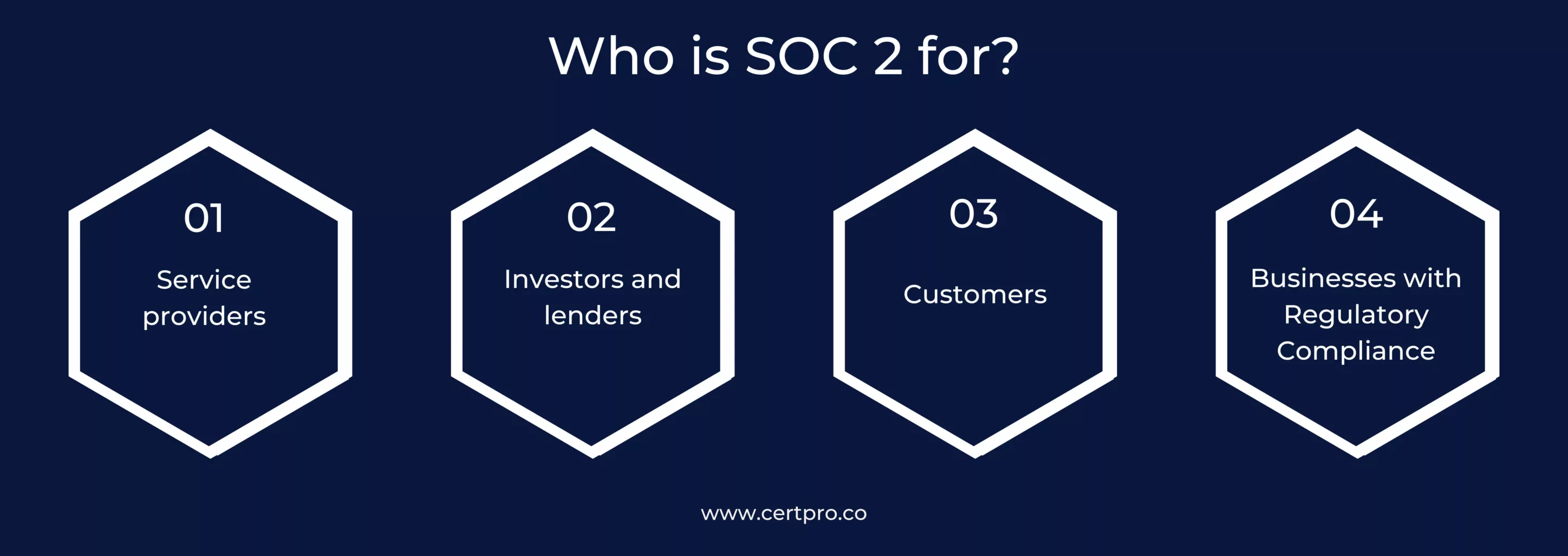
WHY DO COMPANIES NEED SOC 2 COMPLIANCE?
The primary focus of SOC 2 security principles is to prevent unauthorized use of the organization’s assets and data. In order to limit misuse, stop harmful assaults, prevent illegal data deletion, and stop unauthorized manipulation or publication of firm information, this principle requires organizations to set up access controls.
1. Customer Trust: The statement indicates a strong commitment to protecting, granting access to, and maintaining the privacy of client data. Building partnerships through a dedication to data security and confidentiality cultivates confidence with clients and partners looking for assurance in the handling of sensitive information.
2. Market Differentiation: Obtaining SOC 2 certification sets a business apart from its competitors and establishes it as a standard for security procedures. This accreditation proves to be a useful tool for marketing and sales initiatives, as it demonstrates the company’s dedication to strict security guidelines that differentiate it from rivals.
3. Data Protection: SOC 2 prioritizes the security of client data. By helping businesses establish and maintain strong data protection procedures, compliance lowers the risk of data breaches and illegal access.
4. Regulatory Requirements: Some industries demand compliance with regulatory requirements, making SOC 2 compliance a must. A company that has earned certification has proven that it is committed to the highest levels of data protection and confidentiality, exceeding industry-specific security and privacy criteria.
5. Internal Process Improvement: Companies often modify internal procedures as part of the path to SOC 2 compliance, which leads to improvements in security policies and overall risk management methods. Through this path, organizational procedures are refined pro-actively for increased security and reduced risk.
6. Third-Party Assurance: SOC 2 compliance includes independent third-party audits, offering external validation of an organization’s security controls. This process provides reassurance to stakeholders, including customers, investors, and business partners, as it ensures an unbiased assessment of the company’s commitment to robust security measures.
THE SOC 2 PROCESS
The SOC 2 process is a symphony of collaboration, where various actors play crucial roles in ensuring rigorous data security standards are met. The principal players involved in this process are as follows:
1. Establish your scope: In order to initiate the SOC 2 process, it is imperative to meticulously identify the specific systems and processes that directly involve or handle client data within your organization, determining the scope of the audit, and concurrently specifying the Trust Service Criteria (TSC) that align with the chosen SOC 2 compliance type, be it Type I or Type II.
2. Develop a gap analysis: Evaluate your existing controls in relation to the selected Trust Service Criteria (TSC) to pinpoint areas that require improvement, ensuring alignment with the specified TSC for SOC 2 compliance.
3. Design and implement controls: Engage in the formulation and execution of internal controls designed to effectively address the identified gaps, a process that may encompass reinforcing access controls, implementing robust data encryption measures, establishing comprehensive disaster recovery plans, and instituting regular monitoring procedures within your organizational framework.
4. Obtain a third-party audit: Initiate the SOC 2 process of contracting a proficient Certified Public Accountant (CPA) firm specialized in SOC 2 audits, assigning them the task of rigorously evaluating not only the design but also the operational effectiveness of your internal controls, culminating in the issuance of a detailed report wherein the auditor articulates their expert opinion concerning the level of compliance your organization maintains with SOC 2 standards.
5. Sustain compliance: Establish and implement continuous monitoring and testing procedures within your operational framework, designed to consistently evaluate and verify the effectiveness of your controls over an extended period, thereby ensuring sustained efficacy and adaptability to evolving security standards.
While the SOC 2 process may appear challenging, the benefits it yields are significant. Embracing this rigorous journey enables you to cultivate trust, enhance your reputation, and distinguish yourself as a frontrunner in data security. It’s crucial to acknowledge that obtaining SOC 2 certification is not a singular undertaking; instead, it signifies an ongoing dedication to achieving excellence in safeguarding data.
SOC 2 CERTIFICATION: WHO DOES IT?
In an era where organizations are progressively acknowledging the significance of showcasing their dedication to information security, a pivotal inquiry emerges: Who possesses the means to open the gates to SOC 2 certification?
1. The Certified Public Accountant (CPA): The Certified Public Accountant (CPA), an impartial conductor endorsed by the American Institute of Certified Public Accountants (AICPA), meticulously evaluates an organization’s controls against SOC 2 Trust Service Criteria. This involves a thorough examination of internal processes, scrutiny of documentation, and interviews to ensure strict adherence to standards. Ultimately, the CPA issues a comprehensive SOC 2 report, expressing their expert opinion on control effectiveness and organizational compliance.
2. The Data Security and IT Team: The duty of erecting and sustaining the data security infrastructure within the organization rests with the IT and data security team, analogous to the percussion section within an orchestra, which serves as the provider of rhythm and foundational support.
3. Officers of Compliance and Internal Teams: Internal departments within the organization, encompassing IT, security, and compliance officers, assume a critical role in the preparation for SOC 2 certification. They engage in collaboration with external auditors, execute essential controls, and ensure continuous adherence to SOC 2 standards.
4. Consultants and Industry Experts: Industry professionals and consultants offer guidance and assistance to organizations throughout the SOC 2 compliance process, analogous to guest soloists contributing their distinctive expertise to the overall performance.
5. Service Enterprises: SOC 2 compliance-seeking organizations are essential to the procedure. They are in charge of putting in place and keeping up with the controls required to guarantee the security and accuracy of the data they manage. Service providers need to make sure that their procedures comply with the Trust Services Criteria and take aggressive measures to fix any vulnerabilities that are found.
6. Software Providers for SOC 2 Reporting: These technological platforms play a crucial role in optimizing the SOC 2 compliance process by streamlining documentation, facilitating effective communication between various stakeholders, and ultimately enhancing the overall efficiency and manageability of the entire procedure.
The expedition towards SOC 2 compliance stands as a testament to the synergistic efforts and specialized skills of a collaborative team. Through cohesive collaboration, each participant brings forth their distinct capabilities, orchestrating a successful execution that ultimately results in the highly sought-after SOC 2 certification – a profound affirmation of an organization’s unwavering dedication to data security and a comforting symphony for its clientele.
Recall that maintaining data security excellence is necessary to achieve SOC 2 compliance; it is not a one-time project. Your company may continue to be a master of the data security symphony, performing a trustworthy and dependable performance that will be remembered by your clients for years to come, by cultivating a culture of cooperation and constantly improving your security posture.
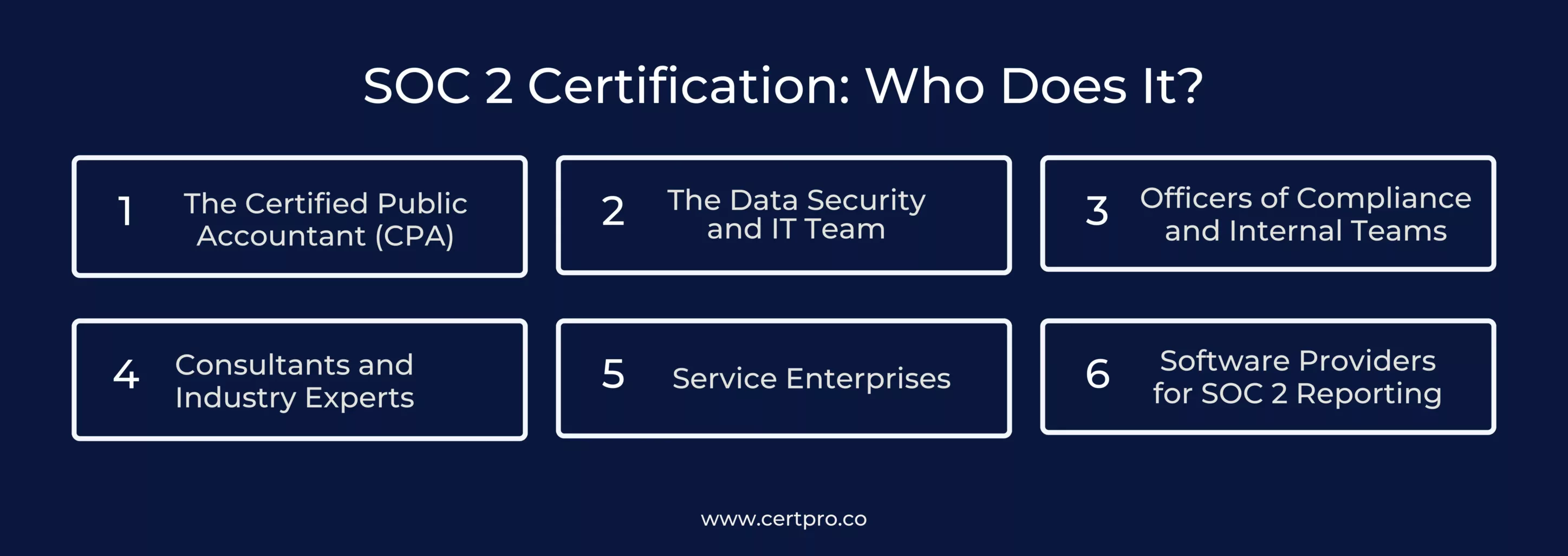
FAQ
What is SOC 2 certification?
SOC 2 certification is a standard developed by the American Institute of Certified Public Accountants (AICPA) that focuses on managing and securing customer data. It assesses an organization’s controls related to data security, availability, processing integrity, confidentiality, and privacy.
Who issues SOC 2 certification?
SOC 2 certification is issued by Certified Public Accountants (CPAs) who conduct thorough audits and assessments of an organization’s controls to ensure compliance with SOC 2 standards.
What are the Trust Services Criteria in SOC 2?
The Trust Services Criteria (TSC) include security, availability, processing integrity, confidentiality, and privacy. These criteria serve as the foundational components for assessing an organization’s controls during a SOC 2 audit.
Who are the key players in the SOC 2 process?
The key players include Certified Public Accountants (CPAs), internal teams (IT, security, and compliance officers), consultants, industry experts, service providers, and software providers for SOC 2 reporting.
What is the significance of the SOC 2 process?
The SOC 2 process is significant as it involves a collaborative effort to establish and maintain robust data security practices. It is not a one-time endeavor but a continuous commitment to excellence in safeguarding data.

About the Author
BHOOMIKA JOIS
Bhoomika Jois is a creative content writer specializing in compliance, ISO 27001, GDPR, and SOC 2. As a Social Media Marketing Specialist, she amplifies her engaging content. Bhoomika’s knack for simplifying complex topics makes compliance and cybersecurity accessible to all.
HOW CAN STARTUPS ATTAIN SOC 2 COMPLIANCE IN 2024?
Trust is crucial for startups to do well in today's digital world. It's vital for establishing credibility with clients, especially in a data-driven environment where privacy is the main component. Therefore, getting a SOC 2 compliance report is crucial to building...
SOC TOOLS: How They Impact On Security Aspect Of The Organization
The changing cybersecurity landscape increases the importance of Security Operations Center (SOC) tools. Hence, it is essential for strengthening digital defenses and protecting against cyberattacks. SOC tools help security teams detect, monitor, and prevent security...
WHAT IS SOC FOR CYBERSECURITY?
In today's fast-paced digital landscape, ensuring robust cybersecurity measures is imperative for organizations aiming to protect sensitive data and maintain stakeholder trust. The American Institute of CPAs (AICPA) crafted the SOC for cybersecurity reporting...

